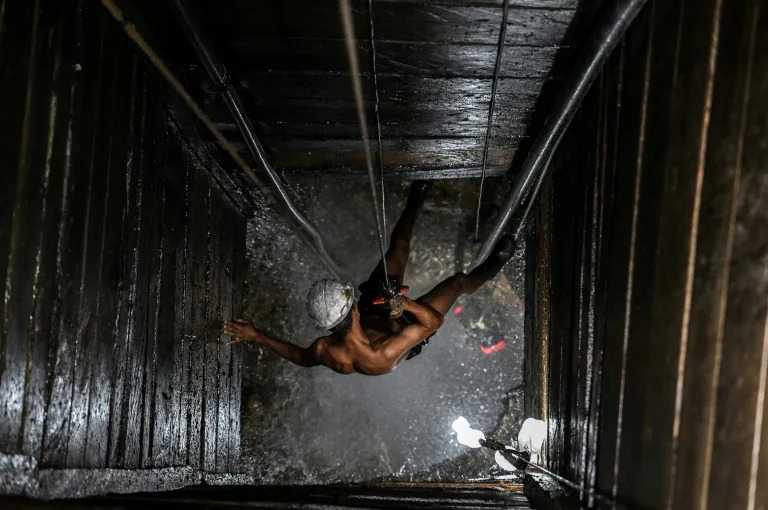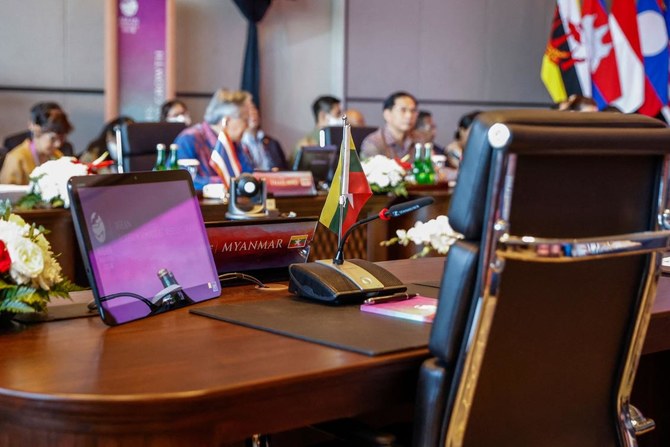Blaise GAUQUELIN
Tue, May 9, 2023

Julian Hessenthaler speaks at the Vienna Volkstheater on April 20, 2023
Four years after a far-right Austrian politician was revealed to have cut deals with a woman posing as the niece of a Russian oligarch, the private detective who dreamt up the sting operation is speaking out.
The "Ibiza scandal" caught the then leader of Austria's far-right Freedom Party (FPOe) Heinz-Christian Strache promising the purported Russian public contracts in exchange for election campaign support.
Filmed in 2017, but not released until 2019, the video led to the spectacular collapse of the coalition Strache was part of and triggered corruption investigations. It ultimately dethroned former Chancellor Sebastian Kurz.
Julian Hessenthaler, the detective who conceived of the video filmed on Spain's resort island of Ibiza, was jailed in 2021 for trafficking cocaine and possessing forged documents.
Venerated by supporters as a heroic whistle-blower who exposed the corrupt nature of Austrian politics, to his critics he is a venal criminal deserving of imprisonment.
Now fresh out of jail, the 42-year-old told AFP in an interview that Austria "has not learned much" from the scandal as the FPOe again surges in the polls.
Released from prison on April 7, the former "security consultant" has been giving his side of the story in rounds of interviews and talks.
He argues that he was "wrongfully convicted" without material evidence after stepping on powerful people's toes and describes the whole procedure as "dubious to say the least".
- 'Deterrant effect' -
Dubbed the "Ibiza detective" by the press -- a nickname he despises -- Hessenthaler was behind the trap for Strache, a boozy evening in a luxury Ibiza villa during which the FPOe's illegal dealings came to light.
Hessenthaler alleges that a wealthy, Iranian-born lawyer based in Vienna paid at least 100,000 euros ($110,000) to orchestrate the fateful video.
At the time the lawyer had as a client a former bodyguard of Strache who felt he had been unjustly fired and was seeking revenge.
Published by German media in May 2019, the video and its fallout have prosecutors buried in work to this day.
Some 50 personalities from the world of politics, business and media are under scrutiny in various offshoots of the scandal.
But in contrast to Hessenthaler, so far no trials or indictments have produced any convictions for the political heavyweights implicated in the scandal.
The minute Hessenthaler became a free man again, Vienna's renowned Volkstheater staged public debates with him, featuring journalists and artists.
Press rights group Reporters Without Borders and a dozen other non-profits praised Hessenthaler's "courage" and warned his conviction could have a "deterrent effect" on potential future whistle-blowers.
- Leftist 'darling' -
German investigative website Correctiv wrote a long article about Hessenthaler, casting doubt on the prosecution's findings that put him behind bars for drugs.
But conservative Austrian daily Die Presse dismissed him the new "darling of many leftists", while far-right supporters have denounced him as a drug-pushing criminal.
Now Hessenthaler questions whether it was worth producing the video that ousted the FPOe from office, given that the far-right party has since gained national momentum.
"The FPOe has already become the leading political force in the polls," he told AFP.
The far-right party enjoys nationwide support levels of 29 percent, up from the 16 percent it won at polls in 2019.
With the governing coalition weak, the FPOe has tapped into voter anxieties over the war in Ukraine and inflation, as well as anger over strict measures during the pandemic, on top of its trademark opposition to migration.
As for reforms mooted in the immediate aftermath of the scandal, there was "a lot of talk," Hessenthaler said. But the most important legislative changes brought in to tackle corruption "have still not been implemented", he added.
Nevertheless, he said he would "do it again without hesitation", calling Austrian politicians peanuts compared to "far more dangerous" people he has dealt with in the past, albeit without elaborating.
bg/anb/kym/gil/jm






